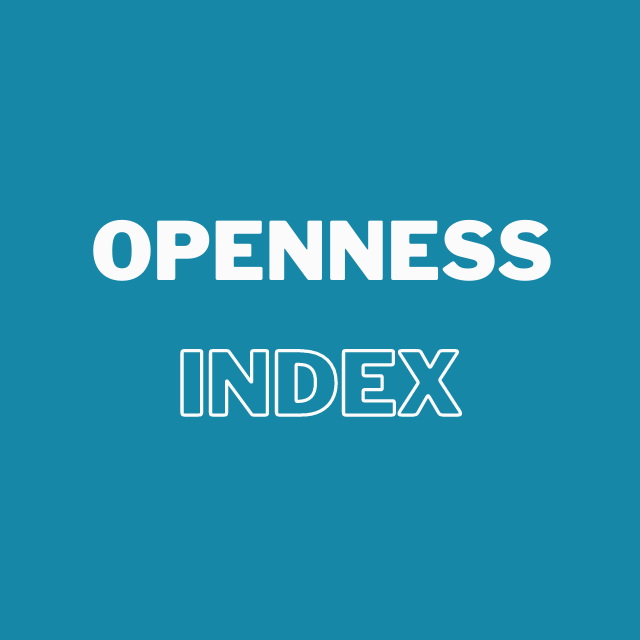Openness Index
Openness is the key condition of democracy since it allows the citizens to receive information and knowledge about equal participation in political life, effective decision-making and holding institutions accountable for the policies they conduct. Institutions around the world are taking specific actions to increase their transparency and accountability towards citizens. In order to determine the extent to which the people from the Western Balkans receive timely and understandable information from their institutions, a regional Openness Index was developed. The regional Openness Index measures the extent to which institutions of the Western Balkans are open for citizens and society, based on the following four principles: 1. transparency, 2. accessibility 3. integrity and 4. awareness The principle of transparency implies that organizational information, budget and public procurement procedures are published and are publicly available. Accessibility is related to ensuring and respecting procedures for free access to information, improving accessibility of information through the mechanism of public debates and strengthening the interaction with citizens. Integrity includes mechanisms for the prevention of corruption, implementation of the Code of Ethics and regulation of lobbying. The last principle, awareness, is related to the monitoring and evaluation of policies which are conducted by the institutions. Following the international standards, recommendations and examples of good practices, these principles are further developed through specific, quantitative and qualitative indicators, which are evaluated on the basis of: information accessibility on the official websites of the monitored institutions, the quality of the legal framework for specific questions, other sources of public informing and questionnaires delivered to the institutions. Such indicators and principles are all integrated in the Openness Index solution which makes it easier for researchers to conduct the measurement on openness.
This platform has been developed as part of the “Techstitution 4.0” project funded by UNICEF Kosovo Program and Austrian Development Agency, and is Implemented by Open Data Kosovo.
![]()
![]()
![]()
